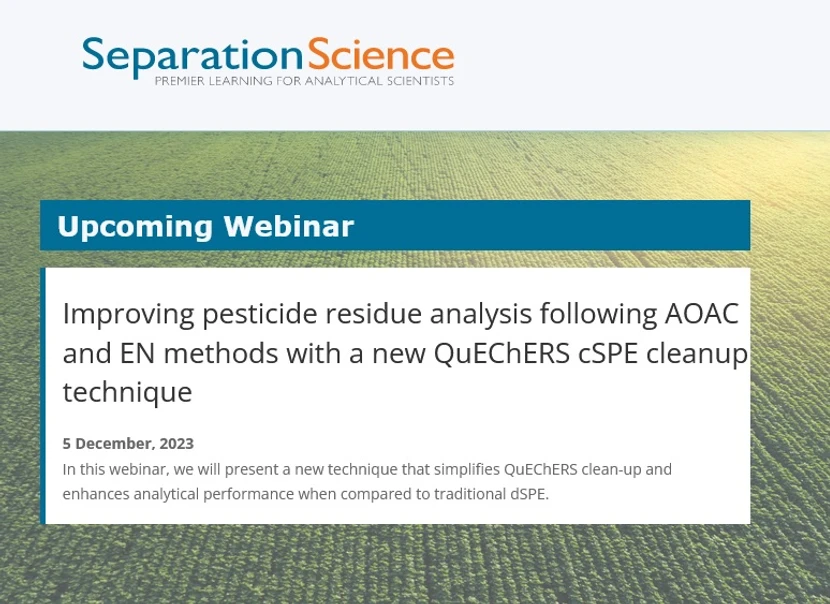Improving pesticide residue analysis following AOAC and EN methods with a new QuEChERS cSPE cleanup technique

Traditional QuEChERS clean-up of food and agricultural sample matrices for pesticide residue analysis relies on the dispersive solid phase extraction (dSPE) technique.
For analytical laboratories using dSPE workflows, the sample is shaken with dispersed SPE media to remove unwanted matrix components that negatively impact data quality. In this webinar, we will present a new technique that simplifies QuEChERS clean-up and enhances analytical performance when compared to traditional dSPE. ISOLUTE® cSPE for QuEChERS columns allow for a convenient, flow-through clean-up workflow for both AOAC and EN QuEChERS techniques. This new workflow eliminates several time-consuming processes, such as capping, shaking, de-capping, and sample transfer. In addition to labor reduction, the ISOLUTE® cSPE for QuEChERS process is more effective at removing unwanted matrix components. Compared to traditional dSPE, extracts processed using cSPE columns result in cleaner analytical baselines, making sample analysis easier, more accurate, and more reliable.
By attending this presentation, you will learn:
How to enhance analytical performance, making sample analysis easier, more accurate, and reliable.
How to simplify sample preparation workflows by eliminating processing steps.
Who should attend:
Analytical laboratories performing chemical residue analysis such as pesticides, fungicides, and insecticides.
Laboratories testing food, agricultural, and cannabis samples.
Lab bench, sample preparation, and extraction chemists.
Lab analytical chemists performing gas and liquid chromatography with mass spectrometry (GCMS & LCMS).
Presenter: Evan Walters (MSc) (Market Segment Manager, Biotage)
Evan Walters is passionate about science and analytical chemistry in environmental, food, and agriculture markets. A trained environmental chemist and geochemist, Evan uses his background in analytical chemistry to connect laboratories with products and workflow solutions to ensure their success. Evan received a Master of Science in Geochemistry from Southern Illinois University and is a published scientific author.
